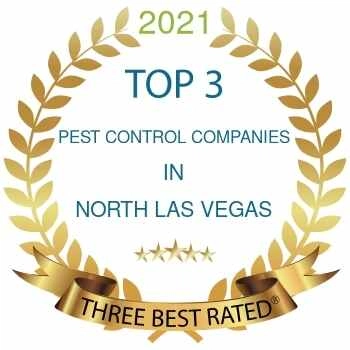How To Choose a Pest Control Company
There are a number of factors you can take into consideration when choosing the best pest control expertfor you. In addition to a company's qualifications and treatment methods, you may also look into how long it has been in business and what the reviews look like. Last but not least, you'll likely want to consider the cost of services.
Below, we discuss each of these factors in more detail.
Does the company have a valid license and permits to perform pest control?
All pesticide applicators (and those that supervise them) need to be certified at the state level. The United States Environmental Protection Agency (EPA) sets minimum standards of competency, but any pesticide applicators working in Nevada should be licensed via the necessary state regulatory agencies.
Is the company a member of any professional organizations?
An optional certification that could be worth looking for is the GreenPro Service Certification. To receive this certification, a pest control company must both demonstrate that its practices are more environmentally friendly and uphold certain training standards for its technicians. Companies can also obtain other certifications from QualityPro or similar trade organizations to further support their work.
Pest control companies can also hold membership in professional organizations. Joining an organization such as the National Pest Management Association (NPMA) or a state-level organization grants a pest control company access to education and resources, in addition to a professional network to compare best practices with. Joining one of these organizations is not mandatory, but it can help show that a company follows industry best practices.
Professional Experience and Specialties
Typically, a company provides information like years of experience and specialities on its website. Local reviews can also tell you whether a company has experience dealing with a particular pest in your area. If you're unable to find the information you need online, you can speak with a company representative directly to get the answers to your questions.
Reviews and Recommendations
You can look at a company's rating and reviews on the Better Business Bureau (BBB), read local review sites and social media to learn what homeowners near you think, or verify its license standing via the Nevada licensing board.
Cost of Services and Guarantees
Cost is important when choosing a pest control company. Cost may be determined by your location, the size of your house, the type of pest being treated, and other factors.
A pest control company may offer a free on-site estimate to help you decide if it fits into your budget. You can also see if it offers a guarantee of satisfaction.
Safety and Treatment Methods
Keeping yourself, your family and your pets safe is an important concern when picking a pest control provider. You may also prefer one that uses environmentally friendly methods.
Safety
All pesticides (except those that pose only a minimum risk) need to be registered with the EPA. Your pest control provider should be able to provide you with information on each pesticide they are using. They should be able to tell you whether these chemicals are low toxicity or non-toxic, and if not, what safety precautions will be in place.
Treatment Methods
You can ask if your pest technician will begin with eco-friendly and lower-toxicity options before employing harsher chemicals.
Many companies are now using Integrated Pest Management (IPM) to eliminate pests while reducing personal and environmental risks. The steps of IPM are as follows:
- Identify the source of the pest problem and determine whether immediate action is required.
- Determine the best and safest course of action.
- Manage the pest problem using a combination of physical, cultural, biological, and mechanical controls.
- Employ chemical controls only when required, and always along with other solutions for effective long-term pest management.
- Observe the results and implement additional pest control as needed.

















